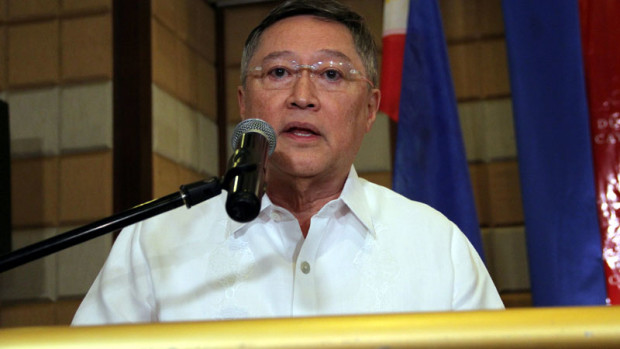The Duterte administration wants the Philippines to formally join the Asian Infrastructure Investment Bank (AIIB) in time for the President’s trip to Beijing this week to erase the massive public works gap that has hobbled the local economy.
Finance Secretary Carlos G. Dominguez III said membership in the China-led multilateral lending agency, an international treaty that requires the ratification of the Senate, would unlock financing potential for the long pipeline of infrastructure projects President Duterte hopes to build during his term.
“We have a lot of projects,” Dominguez said in an interview last week. “In the six years [Mr. Duterte] will be in office, we think we will be spending around P8 trillion for infrastructure.”
The AIIB is an international financing agency launched by China in 2014 and is headquartered in Beijing.
Senate approval
Largely seen as China’s political and economic counterweight to the US-led World Bank and the Japan-led Asian Development Bank, the AIIB was founded by 57 member nations. Philippine participation came a day before the deadline on Christmas Day of 2015.
The country’s formal membership in the AIIB, however, must first be approved by the Senate.
“That’s why I am trying to get the AIIB through the Senate already,” Dominguez said, expressing the hope that lawmakers can tackle and approve the treaty this week.
“I was speaking with Senator [Alan Peter] Cayetano and he says he hopes he can do it. The documents are already with them since, I think, [Wednesday] afternoon. That for me [already] signals [an] achievement,” Dominguez said.
The finance chief, the de facto head of the Duterte administration’s economic team, said membership in the AIIB would unlock funding for all other projects that the government would want to undertake—whether they be a new rail project, an expansion of the country’s aging road network or new airports.
PPP ‘rethink’
At the same time, Dominguez revealed that the administration was in the process of implementing a major rethink of the public-private partnership (PPP) program—the economic centerpiece of the previous administration that was criticized for its turtle-paced implementation of critical infrastructure projects.
“We are changing the way we are looking at PPPs,” he said. “The past administration used to use PPP to raise money by charging [an upfront fee from prospective private sector partners]. Frankly, I don’t think that’s fair because that’s like taxation without representation.”
This scheme, in which the party that pays the government the highest up-front fee for the right to build and operate a project, is to the detriment of the public, which will ultimately shoulder the cost, Dominguez explained.
Borrowing cost scenarios
“Who else will pay for it?” he said. “It looks good [on the government’s] balance sheet, but someone will have to pay for it.”
Dominguez added that the previous administration also used incorrect borrowing cost scenarios for evaluating PPP projects, including the assumption that private sector firms would be able to fund infrastructure project more cheaply because of efficiency considerations.
“They were always assuming that the private sector will be 15-percent cheaper than the government,” he said. “Why should that be?”
The finance chief cited the instance of a 28-kilometer road that the previous administration wanted to widen through the PPP scheme, with the rationale that a private proponent would implement it more efficiently.
He pointed out, however, that the project could have been built more cheaply if it was funded by the national government, whose funding costs are lower than any other Philippine private firm.
